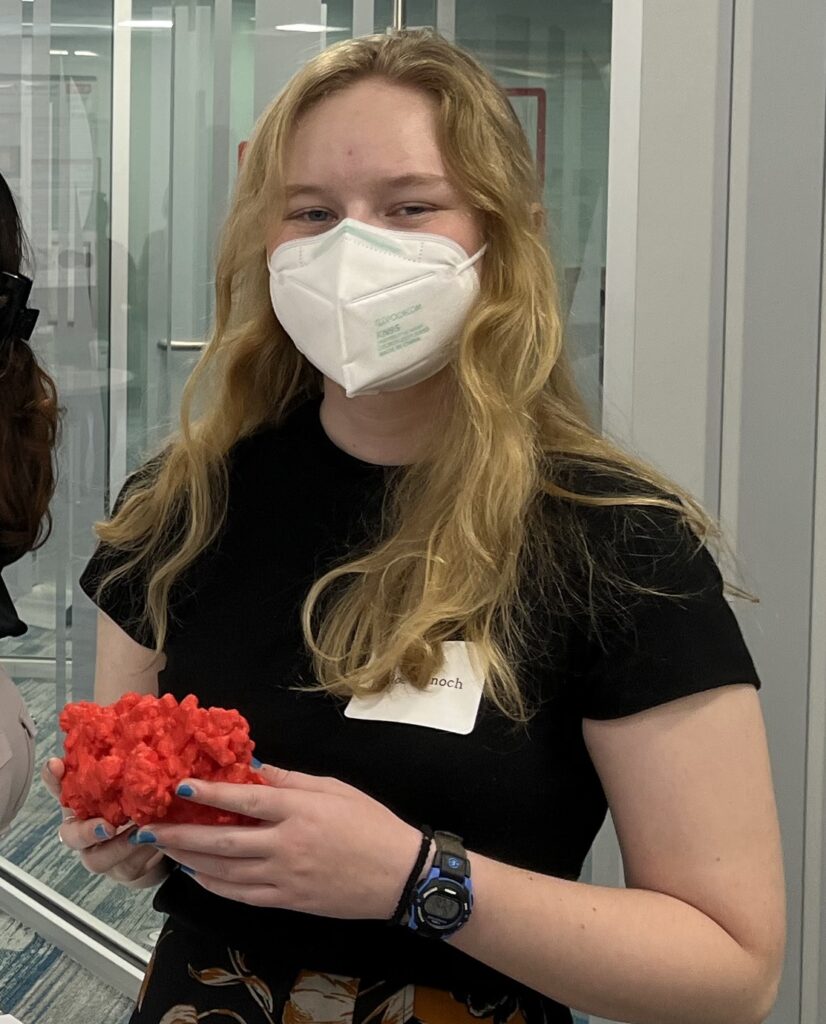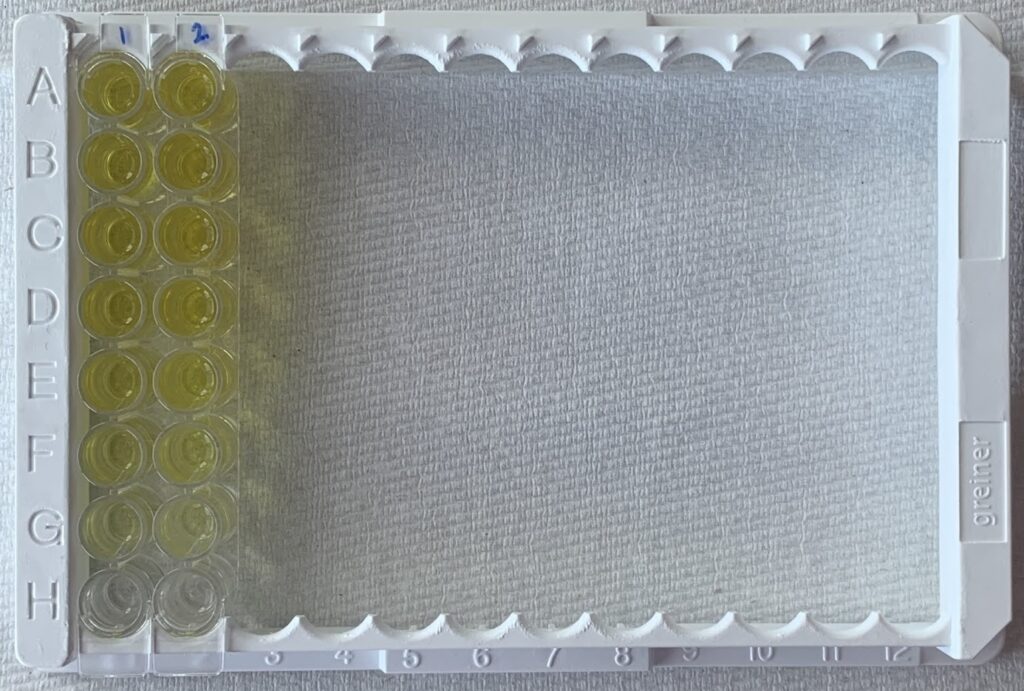Introducing…Assay Development!
The time has come for Dr. Noel, one of the BIT Program’s teaching postdocs who started in the Spring semester of 2022, to offer her unique BIT module to students. Inspired by her work at Baebies, she has spent the last year designing a course that allows students to utilize immunology while designing a functional assay. (Assay is really just a fancy word for “test.”) Common assays that are readily available to the public include COVID tests and pregnancy tests, which are both flow assays. In the lab, assays are anything you can use to test something you’re looking for. Whether it be a phenotype, presence of a protein, or ratio of cells, the possibilities are limitless.
Lucky for me, I was a part of the development process for Dr. Noel’s lab module as one of her undergraduate assistants this past summer. Dr. Noel and I worked together along with Chloe Cernoch, another BIT SURE participant, to select materials, write and edit protocols, and troubleshoot our custom immunoassays. While Chloe and I learned lab procedures, experimental design, and troubleshooting techniques, Dr. Noel was observing our experiences to design her eight-week lab module. It’s been over three months since Chloe and I finished our research experience, so it was time to check back in with Dr. Noel and see how she used our materials, lab notebooks, and overall mentoring experience to further prepare her module.

For now, Dr. Noel hopes to keep the class somewhat flexible. There are a lot of unknown variables, such as class size, extra wellness days, reagent availability, and more. She plans to have two to three lectures introducing immunoassays, enzyme-linked immunosorbent assays (ELISAs), and experimental design. After the introduction section of the class, the lecture periods will typically consist of groups sharing their experimental results and participating in group troubleshooting discussions. There are two main bench lab protocols that students will become proficient in: dot blots and the complex, multistep process that will be developing their ELISAs. While learning and performing these techniques, Dr. Noel is prepared for students to use various troubleshooting and data analysis methods in correlation.

Dr. Noel mentioned how she is the only BIT instructor who has worked in industry before. This adds a unique perspective that she is able to incorporate into her classes. “We have a lot of really cool classes on how to use assays, but this will be the first one where you get to create a novel [immunoassay],” she said. “[In grad school,] I had a really hard time troubleshooting my assays until I understood what was going on. I think getting a peak at the underworkings of how these assays work can help students really get more confident in troubleshooting their own experiments and having that research experience to take with them,” she explained. Dr. Noel further mentioned how it’s really hard to get students to build confidence in troubleshooting because “something has to go wrong for you to get to that point.” Despite the difficulty, companies are always looking for employees who can troubleshoot. This class will be a great environment to test those skills since troubleshooting is challenging to teach in a traditional lecture or lab class.
“The best way to do science is to keep an open mind”
-Dr. Sophie Noel
This assay development course is a great option for those who don’t have a specific area of interest and little background in molecular biology outside of BIT 410/510. For instance, I went into BIT SURE with no idea what an assay even was. One thing that shocked me while I was working on the assay was how much math was involved; antibodies require lots of dilutions, so the dilution calculations taught in BIT 410/510 came in handy. Dr. Noel talked about how she wants students to know this class to be perfect for beginners. Just as Chloe and I experienced, there is so much room for opportunity and growth when working with novel research. And for those students who have more experience, know you have a place as well. Sharing your knowledge with the class during troubleshooting meetings may make a big difference in someone’s project!
Dr. Noel encourages all curious students to consider taking her module. If you’re curious about novel research or industry, this is the place for you. Since it’s a new class with new students conducting new research, there are bound to be mistakes. This module is designed to give students a front-row seat for what mistakes look like outside of typical coursework. “Something that frustrates me about science and engineering education is that people get overly drawn to the right way of doing things when really the best way to do science is to keep an open mind,” Dr. Noel explained.
Dr. Noel’s module will be offered for the first time this coming spring semester, 2023, during session II (second eight weeks). Currently, open seats are still available, so make sure to check MyPack and enroll if interested! The BIT Program is excited to offer this class and thrilled to have you be a part of it!
- Categories: